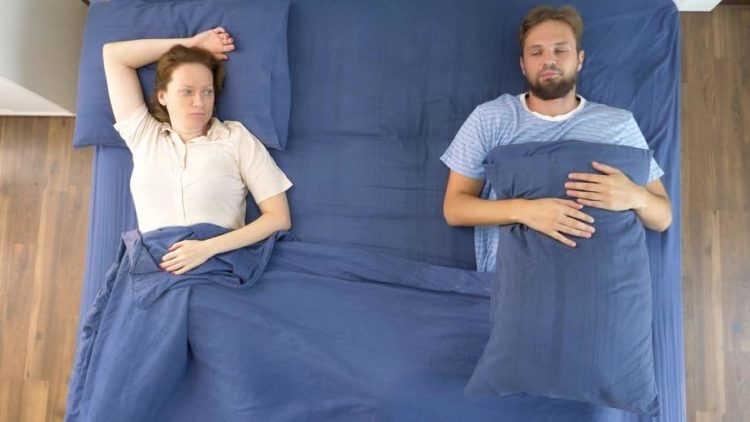By Sean Zucker –
Carson Daly has claimed a sleep divorce between him and his wife saved their marriage, prompting many to respond with the same question. “What the hell is a sleep divorce?” It’s actually a term that’s been around for some time. Technically speaking, a sleep divorce is when a couple decides to no longer share the same bed or room to sleep. Surprisingly, this phenomenon is not only becoming far more popular, but many experts and scientific studies support its effectiveness in repairing and sustaining relationships.
While sharing a bed may appear to be the ultimate expression of intimacy and devotion, the outcome is often far from a fairy tale scenario. According to The New York Times, couples who sleep in the same bedroom are more likely to experience nocturnal disturbances from their partner, such as snoring, bad hygiene, tossing and turning, or different schedules.
The scientific community has actually been building to this revelation for some time. A 2006 study conducted by the Rush University Medical Center examined the impact a snoring partner can have on the strength of a marriage. The findings focused on the high divorce rate for married couples who struggle with sleep apnea. Rosalind Cartwright, Ph.D., founder of the Sleep Disorders Center at Rush, concluded: “The strain on the marriage was evident. The couple was fighting all the time and the surveys revealed low satisfaction with the marriage, especially when it came to effective communication.” After sleep apnea was treated, the university reported substantial improvement in marital satisfaction, sleep efficiency and overall quality of life.
Whether they’re aware of the term or not, a growing number of Americans have already been participating in sleep divorces. According to a 2017 National Sleep Foundation survey, nearly one in four married couples sleep in separate beds. And an even larger percentage claim they’d like to try it, says Mattress Clarity. The mattress reviewer’s 2020 surveys found 30 percent of Americans would like to formally file for a sleep divorce from their partner, while almost 50 percent stated they would rather sleep alone.
To comfort the fears of many considering a sleep divorce, separate beds may not only improve sleep but sex as well. A recent nationwide survey in Britain found that couples who sleep separately not only have higher quality sex but have sex more frequently. Experts in the states appear to concur with the findings. When speaking with The New York Times, psychologist and author of “Dating From the Inside Out” Paulette Sherman clarified when couples sleep separately they often report missing one another and that it adds excitement and longing to their sex life.
While there may still be a stigma surrounding not sharing a bed with your significant other, the benefits might outweigh the cultural scorn. Regardless, studies suggest you won’t be losing any sleep over it.












